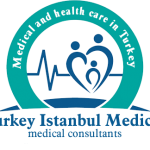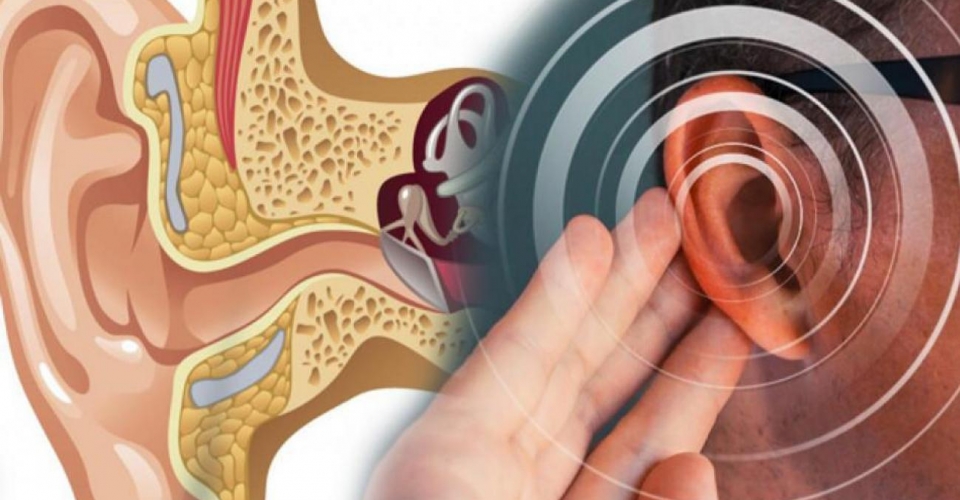What is Meniere’s Disease?
Meniere’s disease is an inner ear disease that can cause dizziness, that is, vertigo and hearing loss, due to the increase in the amount of fluid called endolymph in the inner ear. This disease commonly affects only one ear in most cases.
Meniere’s disease can occur at any age, but it usually begins in young and middle-aged adulthood. It is more common in women than men. Meniere’s disease is considered a chronic condition, but a variety of treatments can help relieve symptoms and minimize the long-term impact on an individual’s life.
What are the Causes of Meniere’s Disease?
In Meniere’s disease, pressure in the ear canals increases due to changes in the amount of inner ear fluids. Depending on this pressure increase, both the balance organs and the related cells in the hearing organ begin to be damaged. And as a result, some symptoms appear.
Although the disease develops in attacks due to intermittent pressure changes, patients may have permanent hearing loss in the future due to damage to cells and limited healing potential of organs.
In addition to genetic factors in the development of Meniere’s disease, congenital anatomical disorders in the ear, viral infections, trauma, various autoimmune diseases. It has been determined that damage to the relevant organs or changes in the inner ear fluids due to allergic reactions may play a role.
What Are the Symptoms of Meniere’s Disease?
Meniere’s symptoms can be different. The main symptoms of this disease are as follows:
Dizziness (Vertigo)
Nausea, vomiting, palpitations, diarrhea, sweating, and fear of death can be added to dizziness. Some of these symptoms may cause the illness to be confused with panic attacks. Dizziness begins suddenly, lasting from 20 minutes to 24 hours. However, it usually takes less than 2 hours. It never exceeds 24 hours.
Ear Humming
A feeling of fullness in the ear can sometimes occur before the dizziness begins. Tension, stress and excessive salt intake can initiate attacks of dizziness. Between episodes of dizziness, the patient may be completely normal or slightly unstable. In 2% of patients, there may be loss of balance and attacks of falling to the ground without loss of consciousness.
Fluctuating Hearing Loss
Hearing loss occurs in the period of dizziness and is in low frequencies. In the early stages of the disease, the hearing loss improves after the attacks of vertigo. However, in the following years, hearing loss becomes permanent after the attack. Fluctuations are more common in the first 5 years.
Sensation of Fullness in the Ear (Tinnitus)
Tinnitus varies from patient to patient and is in the form of hum.
Apart from these symptoms;
- Nausea,
- Vomiting,
- Complaints such as headache are among the other symptoms that may occur in those with Meniere’s disease.
How Is Meniere’s Disease Diagnosed?
In order to diagnose Meniere’s disease, the doctor first performs a physical examination and aims to learn the patient’s health history by asking various questions. The patient should discuss all the symptoms they observe with the doctor during this examination and share information about other conditions or diseases they may have.
For the diagnosis of Meniere’s disease, there must be two episodes of vertigo with hearing loss, tinnitus or a feeling of fullness, which cannot be explained by a different cause, lasting at least 20 minutes, and not more than 12 hours, confirmed by a hearing test. The balance of the individual and inner ear health are also among the items evaluated.
The hearing test evaluates how well an individual perceives different sounds and how well they can distinguish similar-sounding words. While individuals with Meniere’s disease typically have problems hearing low frequencies or a combination of high and low frequencies, they are relatively free at normal frequencies.
For most individuals with Meniere’s disease, the sense of balance that is disturbed during the attack returns to normal between attacks.
Tests to detect the functionality of the inner ear during the diagnosis of Meniere’s disease include tests such as videonystagmography, revolving chair test, vestibular evoked myogenic potentials test, posturography, vHIT test, and electrocochleography.
Videonystagmography, that is, the VNG test, measures the eye movements of the individual and evaluates the balance function. Balance sensors in the inner ear are linked to the muscles that control eye movement. This connection allows the individual to move their head by focusing their eyes on a particular point.
How Is Meniere Treated?
There is no cure for Meniere’s disease, but doctors give supportive treatment to control the symptoms.
Some treatment methods are:
Preventive drug therapy for attacks;
- Vestibular rehabilitation; exercises that help restore balance
- Special diet, especially low salt diet
- Tinnitus and hearing loss treatment; sound therapy and/or hearing aids
- Treatment of stress, anxiety and depression related to the disorder
- Surgery
Preventive Medication:
Medications that treat the symptoms of nausea, dizziness, and vomiting are sometimes given to relieve the effects of a Meniere’s attack. The duration of use of drugs used in the treatment of Menieri’s disease is normally only 7 to 14 days. And the patient is given prochloroperazine or an antihistamine.
It is recommended to take the drug as soon as possible during the attack and to return to a stable and still position until the symptoms begin to subside.
In particularly severe cases, doctors may administer prochloroperazine injections or hospitalize the patient and provide intravenous fluids to compensate for the lost fluid.
Operation:
If the dizziness attacks cannot be controlled with conservative solutions and the attacks limit daily activities, one of the following surgical procedures may be recommended:
Endolymphatic Shunt (Emptying Inner Ear Fluid) Or Decompression (Reducing Pressure) Procedure:
It is an ear surgery that preserves hearing. In 1/2-1/3 of the cases, vertigo attacks are controlled. However, this control is not permanent in any patient. It takes less time compared to other processes.
Vestibular Neurectomy:
It is the process of cutting the balance nerve where it leaves the inner ear and enters the brain. The majority of vertigo attacks can be treated with this surgery, and in most cases, hearing is preserved.
Labyrinthectomy and Cutting of the Auditory Nerve:
It is the destruction of hearing and balance mechanisms in the inner ear of one side. This method may be preferred if the affected ear of the Meniere’s patient has very little hearing. Dizziness attacks are usually controlled.
Frequently Asked Questions About Meniere’s Disease
Who is in the Risk Group for Meniere’s Disease?
The causes of Meniere’s disease are uncertain. However, some risk factors are thought to increase the risk of developing Meniere’s. As Meniere’s risk factors; drainage problems caused by ear structure, immune system responses, allergies, viral infections, genetic predisposition and migraine.
What Happens If Meniere’s Disease Progresses?
Although Meniere’s disease is not life-threatening and does not have serious complications, attacks that cannot be predicted when it will occur significantly affect the quality of life of the person. The age period of the disease is usually the most mature and productive period of people’s business life. In some cases, social life and work performance are more clearly affected, and in some cases, psychological problems such as anxiety and depression may occur.
Does Meniere Cause Headache?
In some patients, migraine or tension-type headache may accompany dizziness.
What is the Difference Between Meniere and Vertigo?
Severe dizziness, which can last from 20 minutes to 24 hours, is a typical situation, especially during the attack. Patients may describe dizziness as “The room revolves around me”. In Meniere’s disease, ear fullness and hearing loss may accompany vertigo.
What Triggers a Meniere’s Attack?
Smoking, stress, allergies (especially food allergy), excessive use of salt and flour, head trauma, migraine and anatomical disorders in the skull bone, where the inner ear is located, trigger Meniere’s disease.
What Foods Are Good For Meniere’s Disease?
Sodium intake of Meniere’s patients should be restricted. For this, the daily salt consumption of the patient should be under control. For the sick person, 1500 mg/day salt intake is ideal. In addition, caffeine and alcohol consumption should be reduced. The most important salt-free diet; It is the Furstenberg regime. Fluid intake is not restricted on the Furstenberg diet, however, consuming too much water is not recommended. KCL can be used instead of salt.
What Exercises Should Be Done for Meniere’s Disease?
- Vestibular exercises such as the Cawthorne-Cooksey exercises can help Meniere’s patients. Head and eye movements are used in these exercises. It can be done while sitting or lying down.
- First sit on a chair or lie on your back. The patient looks first at the forehead, then at the nose, then to the left and right. Finally, he focuses on her by holding a finger one meter away from her face.
- This finger is brought up to 30 cm without losing focus. Patients can do these Meniere’s disease exercises as much as they want. As you feel less dizzy while doing it, you can accelerate more.
- For another exercise should sit upright in a chair. First, the chin is lowered towards the chest, then the head is thrown back to look at the ceiling. This movement should be done slowly and the eyes should be kept open.
- As this exercise makes you less dizzy, you can speed up and close your eyes. Turn right to look over the right shoulder and then turn left to look over the left shoulder. This exercise can also be accelerated over time.

